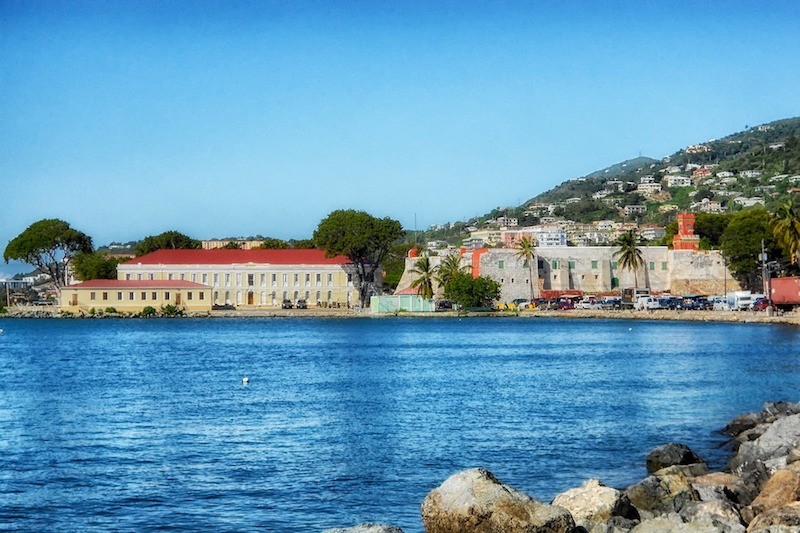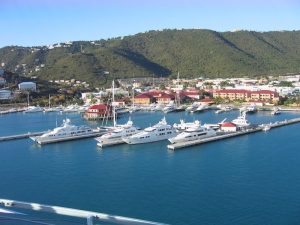US Virgin Islands company formation is becoming more and more common. It is the only jurisdiction in the world that can offer tax-free for-profit business corporations under the United States flag. As a US territory, the US Virgin Islands are treated as a foreign jurisdiction in many instances. However, their familiar legal system and excellent infrastructure make the US Virgin Islands a premiere destination for offshore incorporation. This is particular the case for American investors, with whom corporations and limited liability companies are most popular.
The British Virgin Islands or BVI are nearby islands. As the name implies, the USVI is British territory. Whereas the USVI, as we stated, is part of the United States. We can form a BVI company or a USVI company.
US Virgin Islands Corporations
US Virgin Islands corporations are based on the Delaware model. Corporations in the US Virgin Islands are formed by three incorporators. These incorporators elect the company’s directors. If there are fewer than three shareholders, US Virgin Islands corporations are required to have a minimum of one director for every shareholder. If there are more than three shareholders, the minimum number of directors is three.
Directors of corporations in the US Virgin Islands are required to be natural born persons. They may not be legal entities. The directors are permitted to reside anywhere in the world. Nominee directors are allowed under US Virgin Islands law. Corporations in the US Virgin Islands are required to fill three officer positions. The first position is the president, who must be a director. The second position is a secretary. The secretary must not be the same person as the president. The third position is the treasurer. It is common for one person to serve as director, president, and treasurer while another person serves as secretary.
The minimal required share capital for a US Virgin Islands corporation is US $1,000. The standard capitalization for a closely held corporation is 1,000 shares of no par value stock. This stock is both authorized and issued with a stated value of US$ 1 per share.
Reporting obligations for corporations include filing an annual report which contains the identities of officers and directors. The report is not required to disclose the identities of shareholders.
US Virgin Islands LLCs
The Uniform Limited Liability Company Act was adopted by the US Virgin Island in 1998. For this reason, a US Virgin Island’s LLC is similar to an LLC formed in another US jurisdiction, such as Delaware or Nevada. LLC’s in the US Virgin Islands are formed when a single organizer files Articles of Organization with the US Virgin Islands government.
An LLC can be governed by its members or it may be governed by a manager appointed by its members. Members frequently enter into an operating agreement with the company. This agreement sets forth the manner in which the company will be governed. Initial managers and members are named in the operating agreement.
LLC’s are required to file an annual report every June 30th. This report contains basic information about the company. It also includes an annual fee. The report is required by law to disclose the names of any managers. It does not, however, identify the names of any members.
US Virgin Islands LLCs have the ability to file an election which will allow them to be treated as a corporation for tax purposes. Without an election, the members of a US Virgin Island’s LLC are taxed on the LLC’s profits. However, if the election is filed, the LLC itself is liable for any taxes.
Taxation in the US Virgin Islands
The US Internal Revenue Code applies in the US Virgin Islands under a mirror system. Under this system, the US Virgin Islands are substituted for the US whenever necessary. The Bureau of Internal Revenue (BIR) taxes US Virgin Islands corporations on worldwide income. Nonresident corporations are taxable on income which is effectively connected to trade or business in the US Virgin Islands. They are also subject to tax on most income which is not considered effectively connected income but is derived from the US Virgin Islands. US corporations which claim US Virgin Islands sourced income are not subject to withholding or gross basis tax. US corporations which hold branches in the US Virgin Islands are not subject to branch profits tax.
Resident Corporations
Resident corporations in the US Virgin Islands are subject to taxation on their worldwide income. This includes income from a business, compensation for services, fees and commissions. Dividends, interest, royalties, rents, gains from property investments, and income derived from partnerships are also taxable. These items are taxable regardless of the source from which it was derived. Deductions are allowed for depreciation, amortization, expenses, losses, and other certain items.
Nonresident Corporations
Nonresident corporations are generally subject to the same tax as resident corporations. The exception to this is that the taxable income on a nonresident corporation is limited to the gross amount of its effectively connected income. Nonresident companies have the ability to claim deductions on effectively connected income. Effectively connected income, known as ECI, includes any gain from the sale of a US Virgin Island’s real property. It also includes income connected with a participation in a partnership which engages in business in the US Virgin Islands. Finally, income received from as the beneficiary of an estate or trust in the US Virgin Islands is considered effectively connected income.
All foreign corporations, with the exception of US corporations, are taxed on a gross withholding basis on US Virgin Islands sourced portfolio income. This includes dividends, interest, rents, and royalties which are not considered effectively connected income.
Branches of foreign corporations are taxed in the same manner as domestic corporations with regards to income sourced in the US Virgin Islands. They are also subject to a branch profits tax unless they are a branch of a US corporation. The branch profits tax is designed to replicate the tax which would be imposed on dividends paid from a US Virgin Islands subsidiary of a foreign company engaged in similar activities. The US Virgin Islands also imposes a gross receipts tax (GRT) on all firms, corporations, and organizations doing business in the USVI. Banks, however, are exempt from the gross receipts tax.
Incentives
The US Virgin Islands offers numerous tax incentives for qualified investors who do business within the territory. The USVI Economic Development Program and the University of the Virgin Islands Research and Technology Park Tenant Program (RTPark) are two such incentives.
US Virgin Islands Profile
The US Virgin Islands consist of the islands of Saint Thomas, Saint John, and Saint Croix. They are located between the Caribbean Sea and the North Atlantic Ocean. Historically, the southern Virgin Islands were occupied by the Danish. Sugarcane, which was produced by slave labor, was the primary driver of the island’s economy during the 18th and 19th centuries. Slavery was abolished in the region in 1848. The United States purchased the Danish holdings in 1917.
The islands are an organized, unincorporated territory of the United States. The president of the US Virgin Islands is the US mainland sitting president. The policy relations between the US and the Virgin Islands are under the jurisdiction of the US Department of the Interior’s Office of Insular Affairs. The US Virgin Islands are self-governed. They operate under the US common law system. Under the US Constitution, residents of the US Virgin Islands do not vote in the US presidential and vice-presidential elections. They may, however, vote in the Democratic and Republican presidential primaries. The governor and lieutenant governor are directly elected on the same ballot by an absolute majority vote. They are elected to four-year terms.
The primary economic activities in the US Virgin Islands are tourism, trade, and other services. These activities account for nearly 60% of the territory’s GDP. They also represent about half of the total civilian employment. The territory plays host to nearly 3 million tourists per year. The majority of tourists come from visiting cruise ships. The majority of food on the islands is imported, as the agricultural sector is small. Industry and the government account for one-fifth of the GDP. Rum distillation, electronics, pharmaceuticals, and watch assembly comprise the manufacturing sector. The island of St. Croix was home to one of the world’s largest oil refineries. The refinery, which processed 350,000 barrels of crude oil a day until it was shut down in February of 2012. It operated for 45 years.
Federal grants and programs totaled US$ 241.4 million in 2013, contributing to 19.7% of the territory’s total revenue. As a result of the loss of the refinery, the US Virgin Island’s economy has seen a decline in its economy due to decreased exports. Tourism, rum exports, trade, and services are expected to be the major contributors to the territory’s economy in the future.
Saint Thomas and Saint John were heavily affected when Hurricane Irma made landfall on September 6, 2017. Structures, roads, the airport on Saint Thomas, communications, and electricity suffered severe damage as a result of the storm. Less than two weeks later, Hurricane Maria passed over the island of Saint Croix. Significant damage was inflicted as a result of strong winds and flooding rains.




